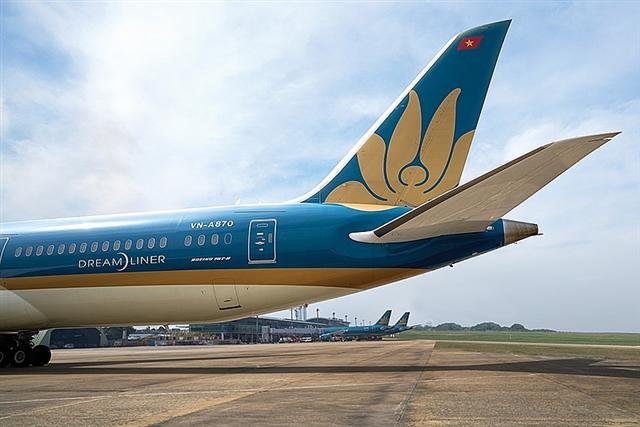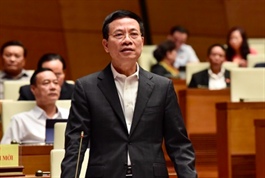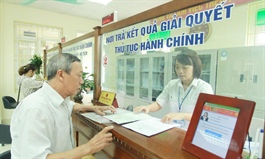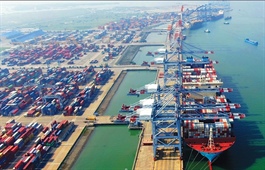Searching for an investment appetite in stricken aviation
Searching for an investment appetite in stricken aviation
Airlines and airports are all being hit hard by the global health crisis and, despite some positive changes in legal frameworks, investment interest in the sector is still at a low level. Tony Foster, managing partner in Vietnam at law firm Freshfields Bruckhaus Deringer LLP, provides analysis into the situation and the potential for new financing.

Foreign investment in Vietnamese aviation is hampered by border closures and unwelcome regulations
|
Airlines are on their knees, to use an inapt idiom, and several around the world have declared bankruptcy. Nearly all of them have made swathes of redundancies. Here, national flag carrier Vietnam Airlines has reported losses of about VND10 trillion ($434 million) for the first nine months of 2020 and is looking for government support.
Yet despite the evident difficulties, three new airlines appear to want to take-off in Vietnam. The huge planned Long Thanh International Airport is in the news on a daily basis, and the provinces of Ninh Thuan, Ba Ria-Vung Tau, Thanh Hoa, and Lao Cai also want new airports.
What is the reason for this phoenix-like optimism? The base assumption is that the new normal will be similar to the old normal: people will always want to travel. But it is doubtful whether this is accurate.
For example, Zoom and Microsoft Teams have probably put paid to a lot of business travel. Tourism will also be affected, perhaps on a lesser extent. The younger generation was slowly developing an antipathy to climate change-inducing air travel, while the pleasures of tourism are being annihilated for older generations by commoditisation and a general feeling of dissatisfaction with cheap flights.
None of this augurs well for the sector in the short to medium term, but there may still be some openings for potential investment.
Airlines
Vietnam Airlines has a foreign strategic shareholder, ANA. The price for government support for Vietnam Airlines may be the dilution of interest of other shareholders, and as ANA is forecast to lose $5 billion in 2020, foreign ownership of Vietnam Airlines is likely to decline.
Pacific Airlines, formerly Jetstar Pacific, has seen its foreign shareholder Qantas sell its 30 per cent interest for next to zero – and one can surmise that no other foreign investor will step in after Qantas has lost so much money.
Meanwhile Vietjet is Vietnam’s success story to date, and long may it stay that way. There are no current rumours of any foreign ownership interest.
At Bamboo Airlines, the model was to ferry tourists to various resorts around the country. It is not an attractive model for a foreign airline, even in good times, unless it has an interest in the resorts as well. Few airlines are likely to jump out of the airline frying pan and into the resorts fire.
New group Vietravel Airlines is finalising papers for take-off, but in reality this will be postponed until after the end of the pandemic. The plan is to raise money from domestic investors.
Kite Airlines, also owned by a travel company, is another new contender that is unlikely to be licensed until 2022.
Foreign investor interest in any airline is difficult to see. The recent increase in the maximum foreign ownership limits, which were raised from 30 to 34 per cent, is entirely beside the point.
Aircraft
Some factories in Vietnam make aircraft parts, like Universal Alloy Corporation, Hanwha Aero Engines, Mitsubishi Heavy Industries, Nikkiso, and General Electric. Airbus had publicly touted plans to cooperate with Vietnam in developing an aviation industry by setting up a production centre together with its industry partners
Yet Airbus is not in good shape. France has provided a €15 billion ($17.6 billion) rescue package for its aerospace industry, centred on Airbus in Toulouse.
Thus, the company is hardly likely to be setting up factories in Vietnam to say thank you for the French bailout. The other main aircraft manufacturer, Boeing, and engine suppliers like GE, Rolls Royce, and Raytheon are only better off if they have non-aircraft businesses to fall back on.
So the parts manufacturers have to sit back and hold tight until the turbulence subsides. The maximum foreign ownership limit for many of these factories is 100 per cent. But in the absence of buyers, such flexibility is a moot point.
Airports
Airports and passenger numbers were booming like supersonic aircraft in Vietnam until COVID-19 silenced them. Airports Corporation of Vietnam (ACV), which runs most of the airports, has fended off various foreign suitors during the boom years. Will they come back knocking?
Passenger numbers are a fraction of their former selves basically due to the absence of international flights, but plans for new airports grow by leaps and bounds.
The biggest is Long Thanh International Airport, a brand new VND300 trillion airport (about $15 billion) near Ho Chi Minh City. Government policy on airport development is still being determined. The logic of having one airport operator in the country is fighting not only a “one airport, one operator” model, which would allow different operators for different airports, but also a free-for-all, where any number of operators could operate different terminals at the same airport. The outcome is not yet known.
Foreign investors are indeed interested in various aspects of Long Thanh. Yet they can only hold 30 per cent of the charter capital of an airport business, which is widely defined to cover any business within the scope of the management of the entity that is responsible for the infrastructure and buildings of the airfield.
Aviation services
There are numerous additional services that relate to airports, aircraft, or airlines. The main ones are typically passenger terminal operation services, cargo warehouse operation services, aviation petroleum services, aircraft maintenance, air navigation, and personnel training.
Some of these are of interest to foreign investors, even in the absence of bright prospects for traffic growth. But the regulatory framework is not welcoming and there is little foreign ownership participation in these areas. There are limits and conditions to the right of foreign investors to come into these areas, either at all or beyond a certain percentage.
There are some treaty overlays, such as those in the EU-Vietnam Free Trade Agreement, which came into force in August and which will eventually make it easier for foreign investors to provide these services. As for everything in Vietnam, patience will be an attribute.
In conclusion, there is significant foreign interest in Vietnam’s airports, though the valuations that would have been placed on these assets will not be the same as in prior years. There is also interest in aviation services, but the ability to enter this market is limited. Airlines and aircraft parts are not exactly the flavour of the month for international investors.























